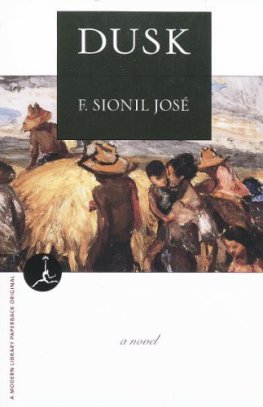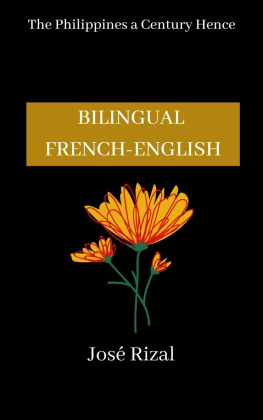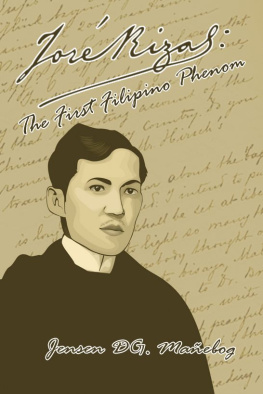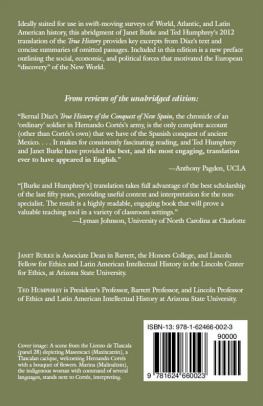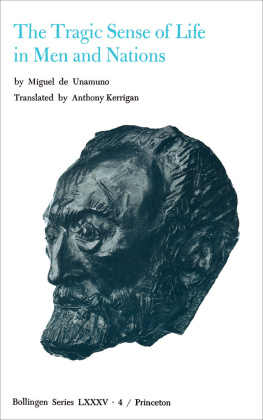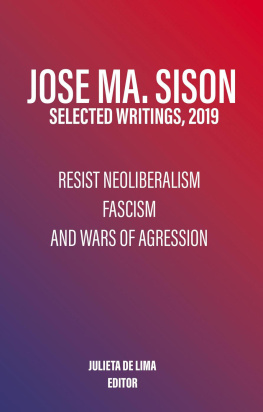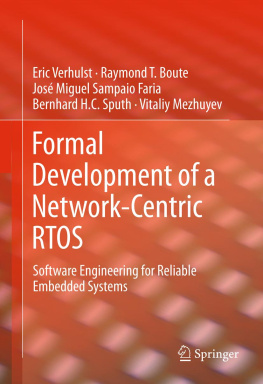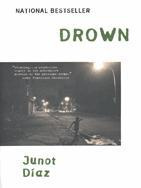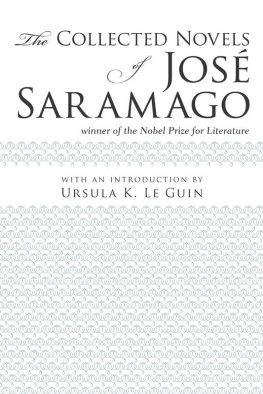
The Appeal of the Philippines
This book examines the different means through which Spain has revisited its ex-colony the Philippines since 2000. Focusing on several major exhibitions organised in the period 19982017, the poetics (narratives and meaning) and politics (institutional power) of Spanish representations of the Philippines are critically examined. Even though Spains intention was to offer a fresh and updated look at the Philippines through the events organised, there was also a tendency to refer to and recreate a colonial past, posing important questions about the continuity of conceptions concerning the old Spanish Empire in the twenty-first century.
Daz Rodrguez further analyses Spanish cultural policy concerned with cultural promotion outside Spain and, in particular, in the Philippines. He considers the Spanish official approach to cultural exchange in the Philippines and the consequences of particular intercultural events supported by Spanish institutions in the Philippines. This is evidenced by unique data gathered from a number of interviews conducted by the author with Spanish and Filipino artists and cultural workers. His conclusions contribute to the understanding of the transnational movement of culture, including cultural representation, arts funding, and the links between politics and the arts.
Jos Miguel Daz Rodrguez is a Lecturer at Massey University of New Zealand Aotearoa. He holds a PhD in Spanish Cultural Studies, for which he received an Arts and Humanities Research Council Award at the University of Leeds (UK). His research interests include Spanish and Filipino cultural studies, cultural representation, postcolonialism, intercultural exchanges, and the promotion of culture in transnational contexts.
Routledge Contemporary Southeast Asia Series
The aim of this series is to publish original, high-quality work by both new and established scholars on all aspects of Southeast Asia.
The Political Economy of the Agri-Food system in Thailand
Hegemony, Counter-Hegemony, and Co-Optation of Oppositions
Prapimphan Chiengkul
Transforming Society
Strategies for Social Development from Singapore, Asia and Around the World
Edited by Ngoh Tiong Tan
Torture and Peacebuilding in Indonesia
The Case of Papua
Budi Hernawan
Family and Population Changes in Singapore
A unique case in the global family change
Edited by Wei-Jun Jean Yeung and Shu Hu
Islamic Education in Indonesia and Malaysia
Shaping Minds, Saving Souls
Azmil Tayeb
Islam, State and Society in Indonesia
Local Politics in Madura
Yanwar Pribadi
The Appeal of the Philippines
Spain, Cultural Representation and Politics
Jos Miguel Daz Rodrguez
For more information about this series, please visit: www.routledge.com/Routledge-Contemporary-Southeast-Asia-Series/book-series/RCSEA
The Appeal of the Philippines
Spain, Cultural Representation and Politics
Jos Miguel Daz Rodrguez
First published 2018
by Routledge
2 Park Square, Milton Park, Abingdon, Oxon OX14 4RN
and by Routledge
711 Third Avenue, New York, NY 10017
Routledge is an imprint of the Taylor & Francis Group, an informa business
2018 Jos Miguel Daz Rodrguez
The right of Jos Miguel Daz Rodrguez to be identified as author of this work has been asserted by him in accordance with sections 77 and 78 of the Copyright, Designs and Patents Act 1988.
All rights reserved. No part of this book may be reprinted or reproduced or utilised in any form or by any electronic, mechanical, or other means, now known or hereafter invented, including photocopying and recording, or in any information storage or retrieval system, without permission in writing from the publishers.
Trademark notice: Product or corporate names may be trademarks or registered trademarks, and are used only for identification and explanation without intent to infringe.
British Library Cataloguing-in-Publication Data
A catalogue record for this book is available from the British Library
Library of Congress Cataloging-in-Publication Data
Names: Daz Rodrguez, Jos Miguel, author.
Title: The appeal of the Philippines: Spain, cultural representation and politics/Jos Miguel Daz Rodrguez.
Description: New York: Routledge, 2018. | Series: Routledge contemporary Southeast Asia series; 124 | Includes bibliographical references and index.
Identifiers: LCCN 2018004490 | ISBN 9781138244245 (hardback) | ISBN 9781315277028 (e-book)
Subjects: LCSH: Philippines Relations Spain. | Spain Relations Philippines. | Politics and culture Philippines. | Postcolonialism and the arts Philippines. | Philippines Colonial influence. | Cultural diplomacy Spain. | Spain Cultural policy.
Classification: LCC DS673.S7 D535 2018 | DDC 303.48/2599046 dc23
LC record available at https://lccn.loc.gov/2018004490
ISBN: 978-1-138-24424-5 (hbk)
ISBN: 978-1-315-27702-8 (ebk)
Typeset in Galliard
by Apex CoVantage, LLC
This book has been possible through the cooperation and assistance of a number of people. Thanks to Dr Declan Patrick, for his invaluable help throughout the whole project. Thank you to Prof. Jrn Dosch and Prof. Manuel Barcia who mentored and inspired me at the very early stages of this project. Thank you to my friends in the Philippines, who were always very helpful when searching for information in Manila, and for sharing their time and expertise, especially Isabel Garca, Carol R. Garca-Dyoco, Katerina Veneracin, Liza Escoto, Josephine Ching, Cynthia Lapea, and Beatriz Rodrguez. A big thank you to the artists and cultural workers that I interviewed. Their input was essential to this research, and the interviews made the process much more interesting and fun. Thank you to my family in Spain who supported me in this process, especially during my research trips to Madrid. A big thank-you also goes to my extended family in New Zealand for their help and support.
The year 2017 marked the seventieth anniversary of the establishment of bilateral diplomatic relationships between Spain and the Philippines. It was in 1947 that both countries signed the first Friendship Treaty, after the end of the colonial relationship which they shared until 1898. In the Philippines, this anniversary was commemorated by curating an exhibition displaying seventy photographs of significant moments in diplomatic events between both countries. Luis Calvo, the Spanish Ambassador to the Philippines at the time felt quite optimistic about current relationships, stating in an interview:
Other countries have completed 70 years of relations with the Philippines but only Spain has had the honor of commemorating it in the headquarters of the foreign ministry, which goes on to say a lot about the relationship.
(Calvo in EFE News 2017: online)
This exhibition evidences the importance of photographic displays when it comes to celebrating meaningful events, and in the displays, these images become symbolic of the general message that the curators aim to communicate. In this case, by showing photographs of Filipino and Spanish heads of state and diplomats, the Philippine government is portraying both countries as equal, in the way that they are two independent nations which come together at different points in time to establish official connections to forge bilateral relationships. Interestingly, around the same time, a Spanish photographic exhibition about the Philippines was happening in Spain, albeit with quite a contrasting theme and following a different motivation. The exhibition was entitled




